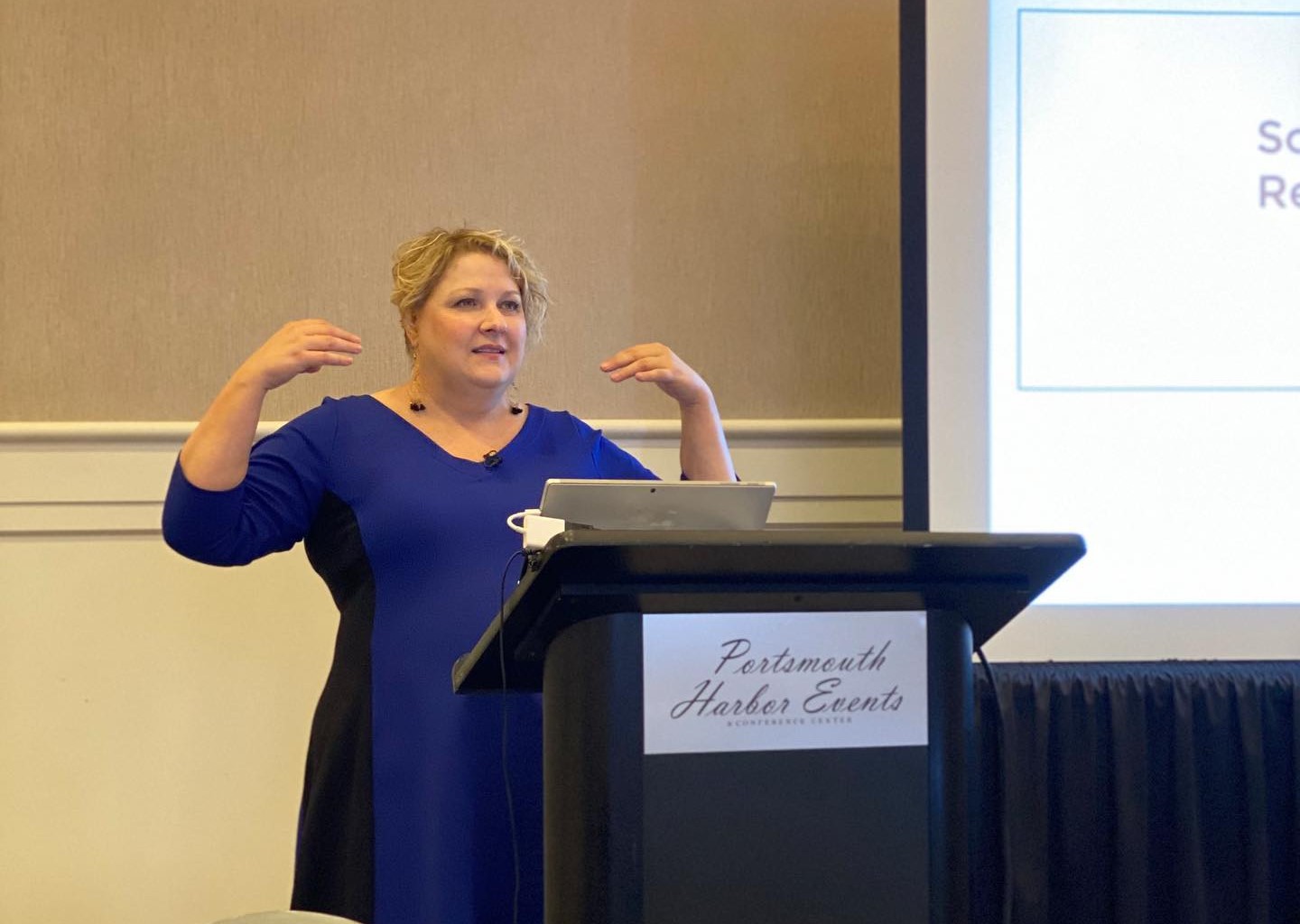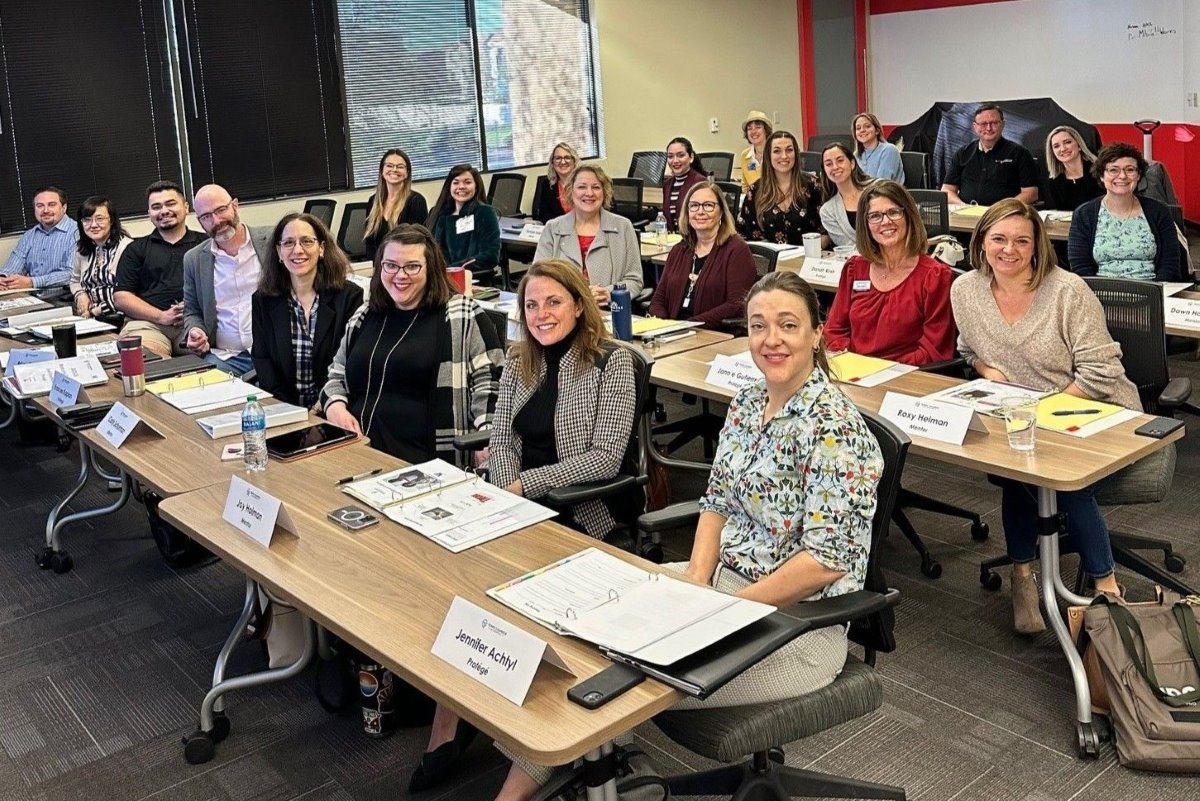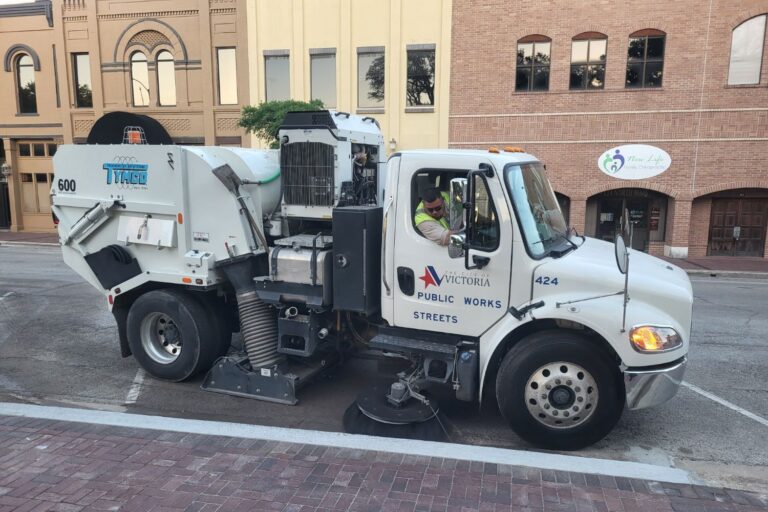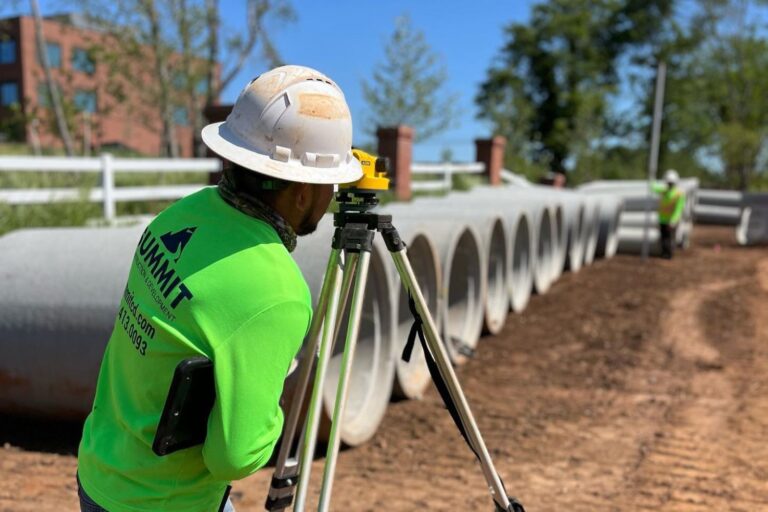Lisa Rehurek on Making State Government Contracts Accessible for Small Businesses
Many people dislike writing, especially when it comes to complex federal proposals. Those who do engage in this task often delay it due to its challenging nature. Additionally, federal proposal writing is a costly endeavor. Success requires a Proposal Manager possessing significant experience, excellent writing abilities, and strong management skills.
Lisa Rehurek and her Tempe-based company, the RFP Success Company is offering those RFP services and beyond in the state government space. Yearslong been in the game and successfully carved out a niche, Lisa is in the best position to tell small businesses what to do and to avoid in order to create win scalability for long-term success.
To comprehend what Lisa Rehurek wants to elaborate, we need to go all the way back to her early days when she started to build up her own empire.
From a Clueless Newbie to Well-Seasoned Player
Lisa Rehurek started in Corporate America and got thrown into a position that she didn’t really know what she was doing. The the RFP Success Company’s founder had a little bit of RFP experience from the hospitality industry, but those RFPs are wildly different.
She said, “I remember the first day them asking me if I worked for a global consulting firm that did Healthcare specifically for government Healthcare programs. They asked me, ‘Have you ever worked on an RFP?’ and I was like, ‘Oh yeah, I totally got this. I worked on them a bunch.’ Then they threw this 200-page document on my desk, and I was like, ‘What is this? ‘”
Lisa shared that she spent several years immersed in an environment focused on proposals, specifically within state government concerning Medicaid. She admitted to not initially knowing what she was doing and having to learn through challenging experiences.
Despite the difficulties, she believes those experiences have equipped her better for the present. Lisa transitioned from Corporate America to establishing her own business, initially working as a general business coach and consultant. However, she acknowledged that adopting a broad approach claiming to assist everyone with everything proved ineffective. That’s why she was looking for a niche, and it found her in the middle of the process.
Lisa stated that, “People from my past were calling, asking, ‘Do you still work with RFPs?’ and I said, “Sure, absolutely, at that time I needed to do anything.’ And then I thought, ‘Huh, there actually might be a business here.’”

That’s how she started this company, The RFP Success Company, in about 2016. The company has always traditionally been an RFP response management company, according to Lisa.
“So, we’ve got kind of those small business offerings. And then we do RFP support where we help source, we help assess, and then we help them bid on their RFPs,” said the company founder.
Having been a well-seasoned player herself, Lisa Rehurek has been through a lot, and one of the first lesson that she want to tell small businesses is to be specific.
Don’t Go After Everything – Find Your Niche and Be Specific
When businesses are in the state government zone, Lisa really highlighted a point that, “don’t say you can work in any state to start because there’s no way you’re going to have time to go sign up for all those certifications and get all that done for every single state. Good on you if you’ve got the resources for that.”
A very narrow focus is absolutely essential, even for the big companies. You can’t go after everything. Companies need to be very specific and understand their customers’ dilemma in order to offer a solution that works.
According to Lisa, “In state where we generally work with service-based businesses, there is definitely a decent amount of narrative that you have to provide in that response. And there is no way that you’re going to be able to stand out and get higher scores if you can’t do more than just what they ask for in the RFP, right?”
Lisa Rehurek also mentioned a point that, “everybody that’s bidding, most of the time, has the requirements and the qualifications. They’re going to answer the questions. It’s not enough to just do that. You’ve got to distinguish yourself.”
So, the companies that don’t distinguish themselves don’t have anything other than just answering that question, talking all about themselves, not tying their solution to the need of the client.
“And so, that really all comes down to how are you packaging your content and delivering that in a way that’s going to resonate and show distinction. That’s probably the first biggest thing, which you can’t do that well if you don’t have the relationship,” said the founder.
Lisa emphasized that, companies need to show that they understand the pain points, the hot buttons. And the only way to know that is by building a relationship long before that RFP comes out. This leads us to her second lesson – build a strong network of relationship.
Don’t Ever Bid Cold – Relationship is a Must
It’s extremely important to find opportunities ahead of the solicitation, develop relationships with the government folks that are actually in charge of putting it on contract, maybe help develop the requirements, what are the specs involved.
According to Lisa Rehurek, one of the top reasons why contractors are failing is because they don’t build relationships with the buyers.

She said, “They have no relationship with the buyer. They’re bidding cold; there’s going to be another bidder in there. You might get lucky, but I don’t know about you; RFPs are hard. They take a lot of time and resources. I don’t know if you want to put all of your hope in hope, right? All of your eggs in the hope basket.”
Lisa is always vocal about the relationship role in winning contracts, whether it’s state or federal levels. “We tell people, if you’re going to bid cold, you have such a small chance of winning. And bidding cold means they don’t know about you, you’ve never had any conversation,” said Lisa Rehurek.
When these solicitations come out, even a 50-page document doesn’t include everything. Sometimes they don’t include the use cases which are very crucial for contractors to know and offer the real solution.
One way to know it beforehand is to talk to the officer from that state government in the Q&A period, whether it’s a bidder’s conference or a week-long period where you can email the contracting officer or the general Q&A. That’s the only time that you can talk to anybody.
However, you’re talking to procurers, you’re talking to the contracting officer; you’re not talking to the agency where the people are really feeling the pain, and they’re the ones that are delivering the service, according to Lisa.
She also added, “All of those things that you can learn in some of those conversations and you can ask the questions, but the best-case scenario is you’ve been building a relationship for a year, and you happen to be talking to the key buyer, one of the key decision-makers, and they’re just having a bad day, and they know you, they trust you, and they’re like, ‘Oh my gosh, this vendor over here did XYZ and it’s just annoying the heck out of me.’”
Lisa continued, “They’re never going to write into an RFP, but do you have a leg up knowing that their hot button is that this vendor over here just shows up five minutes late every single time? Guess what, you can write to that, you can really hit on those things, but you’ve got to know them, you’ve got to have conversations.”
However, to find and connect with the buyers are not easy tasks for small businesses that have a weak network of relationship. But there’s always a way.
Outreach Effort is Key – Pick up the Phone and Call People
According to Lisa, it can be a little bit daunting in the government’s space, but she suggested people to follow a couple of different ways
First, she encourages people to pick up the phone, call the procurement departments and introduce your company, your solution to them. Some procurement departments are going to be better than others; some are going to be super helpful; some are not. If you are a diverse supplier, call the Supplier Diversity agency. That’s what they’re there for, to help connect you.
Another approach is just good old-fashioned, boots-on-the-ground sales. That is going to LinkedIn, see who’s working for the agency, connect with them.
“And when you do that, and any time you get a connection, please don’t just be all about pitching your services. Everybody in the world cares about what’s in it for me, right? So, you want to make sure that you’re giving them what’s in it for them, why they’re going to listen to you. Don’t go in with everything but the kitchen sink, like you were talking about a little while ago. And it is just good old-fashioned prospecting,” as shared by Lisa Rehurek.
When doing prospecting, Lisa highlights the persistency and the focus on adding value to the agency, not just promoting your products or services. Over time, with dedication and value addition, doors will likely open for you.
If You’re New to the Game – Start in Your Home State
When it comes to targeting government contracts, Lisa and her company always tell their clients to start in the local, especially for the newcomers.
“If we’ve got a brand new client that’s not done state contracting at all, we generally tell them to start in their home state because you’re there. A lot of times, our state RFPs will have requirements for location. Alaska’s one, in particular, that is very particular about being local. California also, with the disabled vet certification, they want their disabled vets to be local,” said the female founder.
She added, “So some states are very big on local. What we do, we start there, we look at their local state, see what’s going on, see if what they’re doing is a fit. But we start even sooner than that to say, what is your ideal client? We call it a high-value client. What does that look like to you? And we really define what that high-value client looks like and can from there go and say, ‘Okay, which states would be a good match?’”
Lisa explains that states have different preferences regarding small diverse businesses and local requirements. She researches each state to understand their priorities, terms, and conditions for government contracts in the coming months. This process can be time-consuming because each state is unique.

The RPF Success Company founder also notes that state priorities can change quickly, especially during elections or when administrations change. It’s important to stay informed about these changes, especially if there’s a shift in political leadership.
To that end, the market research phase is a thing to keep in mind, and the question will pop up on how to access to such information without spending a bunch of money on registering to websites, especially for the small businesses whose budgets are tight.
Market Research – Take Advantage to Every Sources
According to Lisa Rehurek, “There’s not anything super simple; there are things that you can piece together.”
She added, “The National Association of State Procurement Officers has a website that discusses their procurement environment, which is important to understand if it’s centralized and what some of their priorities are. So, you can piece together things like that.”
Lisa also recommends two things. Firstly, go to the State website, read press releases from the governor for the last 12 months, and get an idea if there’s anything relevant in your field. For example, if it’s cybersecurity, what are they discussing regarding cybersecurity? Also, look at the state budget and listen to the governor’s State of the State from the prior year to understand the budget.
There’s a lot of information around the budget that is not always easy to weight through, but there are also many meeting minutes you can read about legislative sessions.
Lisa also mentioned a website called findRFP.com. It’s not the best one, but it’s an aggregator that compiles opportunities from federal, state, and local sources. It’s the cheapest option at $30 a month.
You can input your keywords and see what opportunities are available. It’s crucial, especially for small businesses, to understand requirements like insurance and performance surety, which you may not have if you’ve never worked in government contracting.
How to Build Past Performance? – Work as a Sub
The government thinks that how well a contractor did in the past on a job shows how they might do in the future. But for those who just started to jump in the pool of federal or state contracts, what are the ways to build the experience. One possible way is to work as a subcontractor.
According to Lisa Rehurek, “Small businesses generally, the gut is to go and work as a sub to a prime for a while because you’re going to need some past performance, so it really depends on what their past performance looks like but generally if they don’t have any state past performance they need to go be a sub for a little while to get that under their belt and be able to talk about it in the proposal.”









